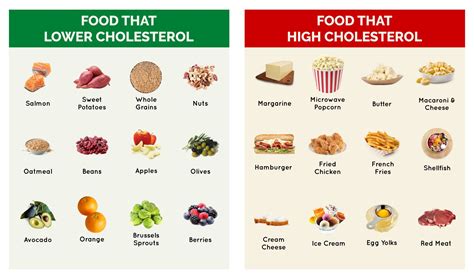
Emergency room physicians are sharing the most unbelievable survival stories they’ve witnessed, recounting cases that defied medical expectations and left them astounded by the resilience of the human body. These “You Shouldn’t Be Alive” moments, revealed in online forums and discussions, range from near-fatal accidents to extraordinary recoveries, highlighting the unpredictable nature of life and death in the ER.
Emergency room doctors, often the first line of defense in life-threatening situations, have recounted some of the most improbable survival stories they’ve encountered throughout their careers. These tales, shared anonymously on platforms like Reddit and other online communities, offer a glimpse into the extraordinary resilience of the human body and the often-tenuous line between life and death.
One recurring theme in these accounts is the sheer improbability of survival given the severity of the injuries or illnesses involved. Doctors describe patients arriving with trauma so extensive that their initial assessment pointed toward certain fatality. Yet, against all odds, these individuals pulled through, defying medical expectations and leaving seasoned professionals in disbelief. “I’ve seen people come in with injuries that should have been immediately fatal, and somehow, they’re talking to me an hour later,” one ER physician shared. “It makes you question everything you think you know.”
These stories often involve freak accidents, where a confluence of unfortunate circumstances leads to a near-death experience. One doctor recounted a case of a construction worker who fell several stories and landed on rebar, which miraculously missed all major organs. Another described a patient who was struck by lightning and survived with minimal long-term effects, a statistical anomaly given the often-lethal nature of lightning strikes.
Beyond accidents, some stories involve medical conditions that seemingly should have been fatal. Doctors have shared accounts of patients surviving severe sepsis, massive heart attacks, and strokes with minimal lasting damage. These cases often involve a combination of factors, including quick medical intervention, the patient’s underlying health, and sheer luck.
The emotional impact of these experiences on the medical professionals involved is also a significant aspect of these shared stories. Witnessing such improbable survival can be both exhilarating and deeply humbling. It reinforces the importance of never giving up hope, even in the direst of circumstances. “These ‘You Shouldn’t Be Alive’ moments remind us why we do what we do,” one doctor explained. “They give us hope and inspire us to keep fighting for every patient, no matter how grim the situation may seem.”
However, these experiences can also be emotionally taxing. Doctors often carry the weight of these intense moments with them, haunted by the fragility of life and the knowledge that outcomes can be unpredictable. The stories serve as a constant reminder of the immense responsibility they bear and the profound impact they have on the lives of their patients.
The sharing of these stories online also serves a valuable purpose for the medical community. It provides a platform for doctors to connect, share experiences, and learn from one another. By discussing these unusual cases, they can gain insights into the limits of medical knowledge and the potential for unexpected recoveries. This collaborative environment fosters a culture of continuous learning and improvement, ultimately benefiting patient care.
Moreover, these stories can offer hope and inspiration to patients and their families facing difficult medical challenges. Knowing that others have defied the odds can provide a much-needed boost of morale and encourage them to persevere through challenging times. However, it is crucial to remember that every case is unique, and outcomes can vary widely. These stories should not be interpreted as guarantees of recovery, but rather as testaments to the extraordinary resilience of the human spirit.
The accounts also shed light on the critical role of emergency medical services (EMS) in saving lives. The quick response and skilled care provided by paramedics and EMTs in the field often make the difference between life and death. Their ability to stabilize patients and transport them to the hospital in a timely manner is crucial in maximizing the chances of survival.
Furthermore, the stories underscore the importance of preventative measures in reducing the risk of serious injuries and illnesses. Many of the accidents described in these accounts could have been avoided with proper safety precautions. Similarly, lifestyle choices such as diet, exercise, and avoiding smoking can significantly reduce the risk of developing life-threatening medical conditions.
In conclusion, the “You Shouldn’t Be Alive” moments shared by emergency room doctors offer a fascinating glimpse into the extraordinary resilience of the human body and the unpredictable nature of life and death. These stories highlight the importance of quick medical intervention, the critical role of EMS, and the power of hope in the face of adversity. They also serve as a reminder of the immense responsibility and emotional toll that comes with working in emergency medicine. While these accounts are remarkable, they should not be interpreted as guarantees of recovery, but rather as testaments to the human spirit’s ability to overcome incredible challenges. They underscore the need for continued advancements in medical science and a commitment to providing the best possible care for all patients, regardless of their circumstances. The anonymous sharing of these experiences fosters a valuable dialogue within the medical community, promoting learning, collaboration, and a renewed appreciation for the fragility and tenacity of human life.
One doctor recounted a particularly harrowing incident involving a motor vehicle accident: “We had a guy come in who had been ejected from his car during a high-speed crash. He had multiple broken bones, internal bleeding, and a traumatic brain injury. His GCS [Glasgow Coma Scale] was incredibly low, and we honestly didn’t think he’d make it through the night. But after multiple surgeries and weeks in the ICU, he woke up and eventually made a full recovery. It was truly miraculous.”
Another story focused on a patient with a severe allergic reaction: “I had a patient who was stung by a bee and went into anaphylactic shock. Her airway closed up, and she stopped breathing. We had to perform an emergency tracheotomy to save her life. Even after we stabilized her, we weren’t sure if she would have any lasting brain damage from the lack of oxygen. But she made a complete recovery and was even able to thank us personally. It was an incredibly rewarding experience.”
These anecdotes highlight not only the medical challenges faced by ER doctors but also the emotional toll they endure. The ability to remain calm and focused under immense pressure is a critical skill, and the stories underscore the dedication and compassion that these professionals bring to their work every day.
Moreover, these “You Shouldn’t Be Alive” moments often prompt reflection on the nature of mortality and the factors that contribute to survival. While medical intervention plays a crucial role, there is often an element of chance or luck involved. Some patients simply seem to possess an innate resilience that allows them to overcome seemingly insurmountable odds.
The sharing of these stories also serves as a reminder of the importance of advances in medical technology and techniques. Many of the survival stories would not have been possible without the sophisticated diagnostic tools, advanced surgical procedures, and life-saving medications that are now available in modern emergency rooms. Continuous innovation and research are essential to improving patient outcomes and pushing the boundaries of what is medically possible.
In addition to the individual stories, the online discussions often delve into broader themes related to emergency medicine, such as the challenges of dealing with limited resources, the ethical dilemmas that arise in critical care situations, and the importance of teamwork and communication among medical professionals. These conversations provide valuable insights into the complex and demanding world of the ER and highlight the need for ongoing support and training for those who work on the front lines of healthcare.
The impact of these experiences extends beyond the medical professionals involved. Patients who have survived near-death experiences often report profound changes in their perspectives on life. They may develop a greater appreciation for the simple things, a stronger sense of purpose, and a renewed commitment to living each day to the fullest. Their stories can inspire others to overcome adversity and to cherish the gift of life.
Furthermore, the sharing of these stories can help to raise awareness of important health and safety issues. By highlighting the consequences of risky behaviors, such as drunk driving or neglecting safety precautions, these accounts can encourage people to make more responsible choices and to protect themselves and others from harm.
The “You Shouldn’t Be Alive” stories shared by emergency room doctors are not just tales of medical miracles; they are also powerful reminders of the human capacity for resilience, the importance of compassion and dedication in healthcare, and the profound impact that medical professionals have on the lives of their patients. They offer a glimpse into the extraordinary world of the ER, where life and death hang in the balance, and where the unexpected can happen at any moment. These narratives remind us to value life, to appreciate the advancements in medical science, and to support those who dedicate their lives to saving others. They also underscore the need for continued research, innovation, and a commitment to providing the best possible care for all patients, regardless of their circumstances.
Ultimately, the stories serve as a testament to the enduring power of hope and the unwavering belief that even in the face of seemingly insurmountable odds, the human spirit can prevail. They are a reminder that every life is precious and that every effort should be made to preserve it. The “You Shouldn’t Be Alive” moments shared by ER doctors are not just stories of survival; they are stories of hope, resilience, and the unwavering dedication of those who work on the front lines of healthcare.
One particularly striking account involved a young child who was involved in a near-drowning incident: “We had a little girl come in who had been submerged in a pool for what we estimated to be at least ten minutes. She was cold, lifeless, and showed no signs of breathing. We immediately started CPR and advanced life support, but honestly, we didn’t have much hope. After what seemed like an eternity, she suddenly gasped and started breathing on her own. It was an absolute miracle. She spent a few days in the ICU, but she made a full recovery and went home without any lasting neurological damage. That was one of those cases that really sticks with you.”
Another doctor shared a story about a patient who survived a massive heart attack: “I had a patient who came in complaining of chest pain. Within minutes, he went into cardiac arrest. We worked on him for what felt like forever, shocking him multiple times and administering medications. Finally, we were able to get his heart beating again. He was in critical condition for several days, but he eventually pulled through and made a remarkable recovery. He’s now living a healthy and active life. It’s amazing to see how far medicine has come and how much we can do to save lives.”
These stories highlight the emotional rollercoaster that ER doctors experience on a daily basis. They witness both incredible tragedies and miraculous recoveries, and they must be able to cope with the stress and pressure of making life-or-death decisions in a matter of seconds. Their ability to remain calm and focused under immense pressure is a testament to their training, experience, and dedication.
The sharing of these stories also serves as a valuable form of peer support for ER doctors. By sharing their experiences with one another, they can process the emotional toll of their work and learn from each other’s successes and failures. This sense of community is essential for maintaining their well-being and preventing burnout.
Moreover, these “You Shouldn’t Be Alive” moments often lead to a deeper appreciation for the fragility of life and the importance of living each day to the fullest. They serve as a reminder that life is precious and that we should not take it for granted.
The stories also underscore the importance of preventative care and healthy lifestyle choices. Many of the medical emergencies that ER doctors treat could be prevented through regular checkups, vaccinations, and healthy habits. By taking proactive steps to protect their health, people can reduce their risk of developing life-threatening conditions and improve their overall quality of life.
In addition to the medical aspects of these stories, there is often a human element that resonates deeply with both the doctors and the patients involved. The bonds that are formed in the midst of a crisis can be incredibly strong, and the gratitude that patients express towards their caregivers can be overwhelming. These moments of connection and compassion are what make the job of an ER doctor so rewarding, despite the challenges and pressures.
The “You Shouldn’t Be Alive” stories shared by emergency room doctors are a powerful reminder of the human spirit’s capacity for resilience, the importance of dedication and compassion in healthcare, and the profound impact that medical professionals have on the lives of their patients. They offer a glimpse into the extraordinary world of the ER, where the unexpected can happen at any moment, and where the line between life and death is often blurred. These narratives remind us to value life, to appreciate the advancements in medical science, and to support those who dedicate their lives to saving others. They also underscore the need for continued research, innovation, and a commitment to providing the best possible care for all patients, regardless of their circumstances. The anonymous sharing of these experiences fosters a valuable dialogue within the medical community, promoting learning, collaboration, and a renewed appreciation for the fragility and tenacity of human life.
Frequently Asked Questions (FAQ)
1. What are “You Shouldn’t Be Alive” moments in the context of emergency room medicine?
These are instances where emergency room doctors witness patients surviving injuries or illnesses that, based on medical knowledge and experience, should have been fatal. These situations often involve extreme trauma, severe medical conditions, or a combination of factors that make survival highly improbable. They represent cases where patients defy the odds and demonstrate the remarkable resilience of the human body.
2. Where do emergency room doctors share these “You Shouldn’t Be Alive” stories?
ER doctors share these stories anonymously on online platforms such as Reddit and other medical forums. This anonymity allows them to discuss sensitive and often emotionally charged experiences without compromising patient confidentiality or professional reputations. These platforms provide a space for peer support, shared learning, and reflection on the challenges and rewards of emergency medicine.
3. What is the emotional impact of witnessing these improbable survival stories on ER doctors?
Witnessing “You Shouldn’t Be Alive” moments can have a profound emotional impact on ER doctors. On one hand, these experiences can be incredibly rewarding and inspiring, reinforcing their dedication to saving lives and highlighting the importance of never giving up hope. On the other hand, they can also be emotionally taxing, serving as a constant reminder of the fragility of life and the unpredictable nature of outcomes. The ability to cope with these intense emotions is a critical skill for ER doctors.
4. What is the significance of sharing these stories within the medical community?
Sharing “You Shouldn’t Be Alive” stories within the medical community serves several important purposes. It provides a platform for doctors to connect, share experiences, and learn from one another. By discussing unusual cases, they can gain insights into the limits of medical knowledge and the potential for unexpected recoveries. This collaborative environment fosters a culture of continuous learning and improvement, ultimately benefiting patient care. Additionally, it offers a form of peer support, allowing doctors to process the emotional toll of their work and prevent burnout.
5. Do these stories offer guarantees of recovery for individuals facing similar medical challenges?
No, these stories should not be interpreted as guarantees of recovery. While they highlight the extraordinary resilience of the human body and the potential for unexpected outcomes, every case is unique, and outcomes can vary widely. Factors such as the severity of the injury or illness, the patient’s underlying health, and the timeliness and effectiveness of medical intervention all play a role in determining the outcome. These stories should be viewed as testaments to the power of hope and the potential for survival, but not as predictions of guaranteed success.









